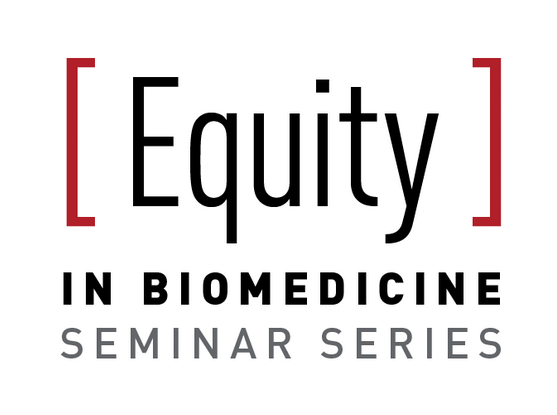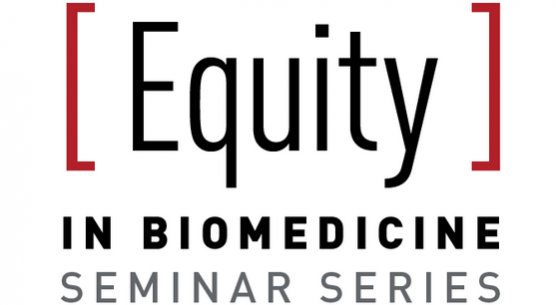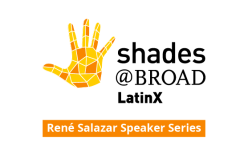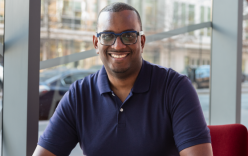
Need for increased genetic diversity in cell line models and CRISPR experimental tools
November 30th
12:00 - 1:00 pm
Location: Monadnock (415M-2040) and broad.io/EBMLive
add event to your calendar here
This talk will be captioned and recorded.
Join Broad’s Lindy Barrett, Ralda Nehme, Sean Misek and MIT's Jesse Boehm as they present on the ways that lack of genetic diversity can limit scientific understanding and impact equity in downstream translational benefits. Lindy Barrett and Ralda Nehme will discuss why increasing genetic diversity of pluripotent stem cell models is critical for ensuring equitable and broadly useful scientific insights and translational benefits. Sean Misek and Jesse Boehm will discuss their work showing how genetic ancestry-based CRISPR guide bias can lead to false negatives in cell-based screens.
The format for the session will be short presentations by each team, followed by a panel discussion focused on challenges and opportunities in this area, and ending with a Q&A from the audience.
About the speakers
Sean Misek is a postdoctoral associate in the Cancer Program. His research interest is in understanding the interplay between germline genetic variation and cancer. He is especially interested in understanding how genetic ancestry influences treatment response. Additionally, he is interested in defining genetic drivers and vulnerabilities of pediatric and adult brain tumors.
Sean received his B.S degree in chemistry from Michigan State University before earrings his Ph.D., also at Michigan State University, where he studied cancer pharmacology.
Jesse Boehm is the Chief Science Officer of Break Through Cancer, a novel foundation dedicated to urgently reimagining how we cure cancer by harnessing the power of extraordinary partnerships. With an initial $250M from private philanthropy, Break Through Cancer unites five leading cancer institutions: Dana-Farber Cancer Institute, Johns Hopkins Kimmel Cancer Center, University of Texas MD Anderson Cancer Center, Memorial Sloan Kettering Cancer Center, and MIT’s Koch Institute for Integrative Cancer Research. Jesse also maintains a research lab at MIT’s Koch Institute focused on bringing the power of functional genomics to bear on living samples from cancer patients with particular emphasis on rare and underrepresented tumors.
Before transitioning to MIT, Jesse previously spent 14 years in the Broad Institute’s Cancer Program, as Associate Director, and most recently as an Institute Scientist and Scientific Director of the Cancer Dependency Map. Propelling the “cancer research ecosystem of the future” to benefit patients as rapidly as possible is his ultimate professional passion and ambition.
Jesse received his BS in biology from MIT and his PhD from Harvard University, Division of Medical Sciences at Dana-Farber Cancer Institute.
Ralda Nehme is a principal investigator in the Stanley Center for Psychiatric Research at the Broad and Associate Director of the Stem Cell Program. Ralda received her BS from the American University of Beirut and her PhD in Genetics from Dartmouth College where she studied neuronal development in C. elegans. During her postdoctoral research at Harvard University, she became interested in modeling psychiatric disease and developed efficient methods to generate neurons from human stem cells. Her lab uses human cellular models to understand how human genetic variation shapes biological processes and psychiatric disease mechanisms.
Lindy Barrett obtained her bachelor’s degree from the University of Chicago, PhD in Neuroscience from the University of Pennsylvania and completed her postdoctoral fellowship at Memorial Sloan-Kettering Cancer Center. She is currently a Senior Group Leader at the Broad Institute and Visiting Scholar at Harvard University. Her research focuses on elucidating fundamental mechanisms underlying neurodevelopmental disorders, with particular interest in how epigenetic re-wiring contributes to disease phenotypes, the factors which drive interindividual variation of phenotypes, and identifying specific points of molecular and functional convergence across disease spectrums.
About the Equity in Biomedicine Seminar Series (EBM)
EBM is an institute-wide interactive meeting that focuses on critical issues related to equity and representation in biomedical research, especially as it applies to genomics research and precision medicine. Speakers dive into the equal or unequal social implications of their work: Who is affected? How are they affected? Why? The overall goal of this series is to foster discussions about equity and inspire Broad scientists and trainees to reflect on the social impact of their own research. Visit our homepage for a full list of previous talks.
The EBM series is led by Alham Saadat in the Inclusion, Diversity, Equity, and Allyship (IDEA) Office. The original organizing committee was led by Mireille Kamariza, and other committee members included Alham Saadat, Namrata Sengupta, Alicia Martin, Patrick Turley, Alex Bloemendal, and Bronwyn MacInnis. For more information about the EBM series or to nominate a future seminar speaker, contact Alham Saadat.






